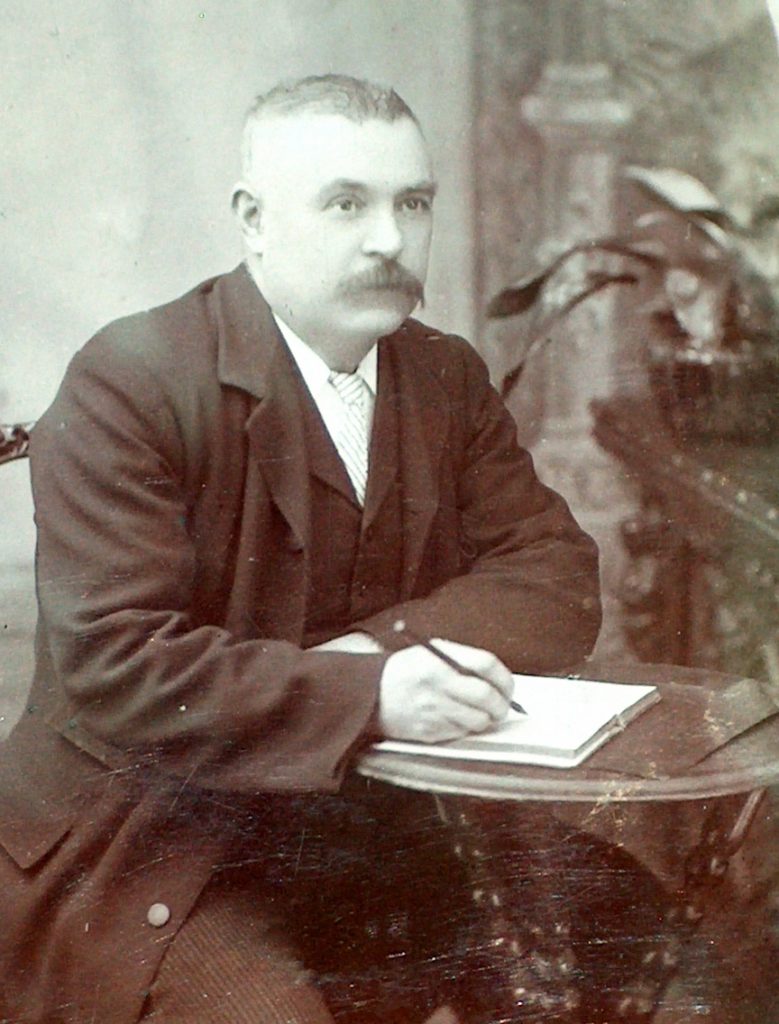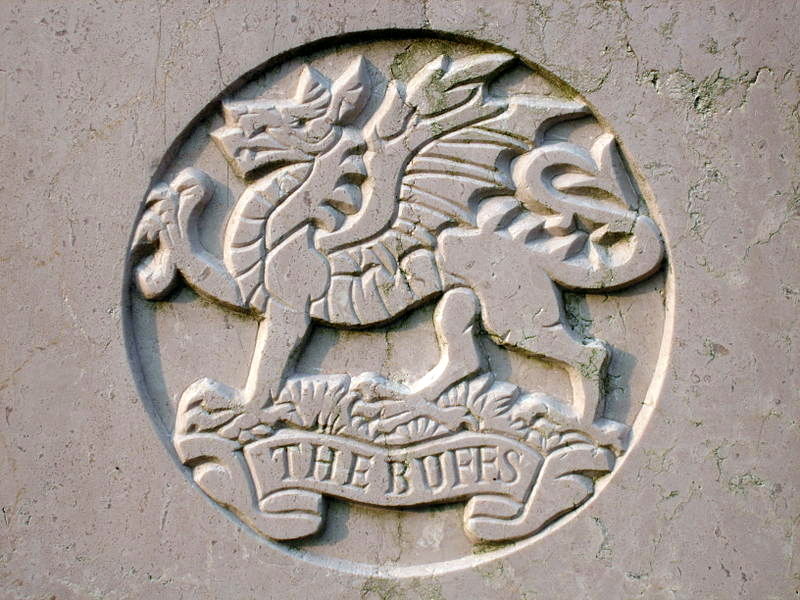BERWICK ADVERTISER, 8 SEPTEMBER 1916
TWEEDSIDE POET HONOURED
BY
INTERNATIONAL INSTITUTE OF BRITISH POETRY

It is with pleasure we announce the election of Mr Thomas Grey, Church Road, Tweedmouth, as a Fellow of the International Institute of British Poetry, and we are sure our readers will join us in congratulating one who has been a regular contributor to our columns upon the well-deserved honour which has come to him unsought.
The Institute was founded in April of this year. Dr Chas. F. Forshaw, F.R.S.I., being the prime mover in the matter and the actual founder of the Institute. The idea of such an Institute had long been with him a cherished ambition, and this year being the Tercentenary of the death of Shakespeare and also the Tercentenary of the death of Cervantes and the centenary of the birth of Charlotte Bronte, he determined to carry it into execution. His experience as an anthologist of more than a generation’s standing had brought him into communication with thousands of poets in all walks of life and with fully a thousand he came into personal contact. Had it not been for the war, the Institute would have made greater progress, but it is safe to say that few could, by their unaided influence, have secured a more representative list of literateurs. The aims of the Institute are many and conducive to human happiness, elevation, learning, and interesting occupation, and full particulars and privileges of Fellowship may be obtained by applicants suitable for election, on application to our worthy townsman, Mr Grey.
BERWICK PETTY SESSIONS
TUESDAY
Before David Herriot and Thomas Wilson, Esquires.
ABSENTEE FROM THE ARMY
James A. Dixon (39), private, 7th N.F., was charged with being an absentee from the Army. He pleaded guilty.
Chief Constable Nicholson explained that a telegram had been received from the officer commanding the Company in which accused was serving to apprehend him, and he was found on the Parade by Constable Spiers.
Constable Spiers deponed that he me the accused on the Parade a 2.45 on the previous day and charged him with being an absentee. The accused replied that he had been waiting in Berwick for a railway pass to take him to his Company, but it had never came.
Chief Constable Nicholson said if the accused had applied to him he would have supplied him with a pass. There had, however, been a considerable amount of trouble with this man.
In answer to Mr Herriot the accused said he was under Major Gillespie’s command. He had been a fortnight out of the hospital at Newcastle, and came to Berwick, where he had been a week.
It was agreed to remand the accused, pending the arrival of a military escort, and to recommend Constable Spiers to the usual award of 5s for apprehending the prisoner.
LOCAL NEWS
Wreck on the Farnes.- The Norwegian steamer Gustav Vigeland was totally wrecked on the Knavestone Rock, Farne Islands early on Tuesday morning during a northerly gale. The whole of the crew, 21 in number, were landed at Seahouses, 12 by the North Sunderland lifeboat and nine by the Holy Island lifeboat. On landing the crew were taken charge of by the local agent of the Shipwrecked Fishermen and Mariners’ Royal Benevolent Society, and lodged at the Bamburgh Castle Hotel in the care of Mrs Cuthbertson. The vessel was 1,336 tons net register, owned by Messrs Ellingson and Johnannsen, Bergen, and in the charge of Captain N. J. Nielsen. She was timber laden from Archangel to London. Since December, 1914, North Sunderland lifeboat Foster Fawsett has saved 75 lives. The crew left for Newcastle yesterday on their way home.
Piper Laidlaw, V.C. – On Saturday last the inmates of the Glendale Union Workhouse were entertained by Piper Laidlaw, V.C., who is a present spending a well-earned holiday at his home in Doddington village.

The company were assembled in the Dining Room, where the gallant piper delighted his audience with selections on the bagpipes and his racy and cheery remarks were equally appreciated. Mr Allan supplemented the soldier’s efforts with selections on the violin. An aged inmate (75 years old), danced a hornpipe in a manner which was really wonderful for one of his age. Miss M. Allan then danced the Highland Fling in excellent style. Piper Laidlaw also visited the sick wards speaking a few kindly words to each patient. Mrs Laidlaw and four children were also present. Mr Fanthorpe (master) proposed a vote of thanks to Piper Laidlaw and the others for their presence, and so kindly entertaining them. Hearty cheers were then given for the Loos hero, his visit having given great delight to all the inmates.
THE LATE LIEUT.-COL. FORSTER, FORMERLY OF SANSON SEAL
The death is announced a Brunswick House, Exmouh, at the age of 76 of Lieut-Colonel James Edward Forster, formerly of Sanson Seal, Berwick-upon-Tweed.
The late Colonel Forster, a member of an old Berwick family, was born at Berwick-on-Tweed (of which Borough he was a freeman) on 4th 1840, and received his commission as an Ensign in the 3rd Regiment of foot (the Buffs) on 18th March, 1858. He became Lieutenant in June 1862, Captain in August, 1867, and Major in January 1831.

He served with the regiment in Malta, Gibraltar, the West Indies, Ireland, India, Natal and Singapore, and retired with the honorary rank of Lieutenant Colonel, in September 1881.
He was on active service with the 2nd Battalion throughout the Zulu Campaign in South Africa in 1879, being present at the battle of Inzeyane and in Elkowe, during the investment there of the late Major General Sir Charles Pearson’s force.
Colonel Forster was mentioned in despatches for his services in that campaign, and received the South African Medal (1879) with clasp.
On retiring from the Army, Colonel Forster resided for a time a Sanson Seal, of which he was owner, but subsequently made his home a Exmouth, where he died.
His departure from the town, as well as that of his sisters, Mr Riddell and Miss Forster, was a considerable loss to the community. He late Colonel’s family was one well known for its beneficence, and all his life Colonel Forster remained a liberal contributor to some of the most deserving institutions in Berwick. As a landlord he was considerate and just, and his interest in all that appertained to the well-being of his farming tenants was never-failing. He was a fine type of squire, sportsman and citizen, and he came to his end as he wished, his mental activity unabated, and, although suffering from effects of a recent illness, still able to take his part in the circle of friendship which was his in the seaside town in which he was so well known.

